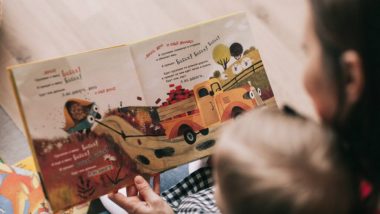Washington, May 25: Parents who regularly read with their toddlers are less likely to engage in harsh parenting, enhancing children's behaviour, a study has found. The study, published in the Journal of Developmental & Behavioral Pediatrics, suggests that shared reading facilitates a stronger parent-child bond and less hyperactivity and attention problems in children.
Previous studies have shown that frequent shared reading prepares children for school by building language, literacy and emotional skills. However, researchers at Rutgers University in the US may have for the first time highlighted additional benefits of shared reading habits.
"For parents, the simple routine of reading with your child on a daily basis provides not just academic but emotional benefits that can help bolster the child's success in school and beyond," said Manuel Jimenez, an assistant professor from the Rutgers University.
According to the research, data on 2,165 mother-child pairs from 20 large US cities were reviewed in which the women were asked how often they read to their children at ages one and three.
The mothers were re-interviewed two years later, about how often they engaged in physically and/or psychologically aggressive discipline and about their children's behaviour.
The study controlled for factors such as parental depression and financial hardship that can contribute to harsh parenting and children's disruptive behaviour.
The study observed that frequent shared reading at age one was associated with less harsh parenting at age three, and frequent shared reading at age three was associated with less harsh parenting at age five.
Mothers who read frequently with their children also reported less disruptive behaviour from their children, which may partially explain the reduction in harsh parenting behaviours.
"Our findings can be applied to programmes that help parents and caregivers in under-served areas to develop positive parenting skills," said Jimenez. The findings can be used further to design programmes promoting the academic, emotional and socioeconomic well-being of children, researchers said.













 Quickly
Quickly


